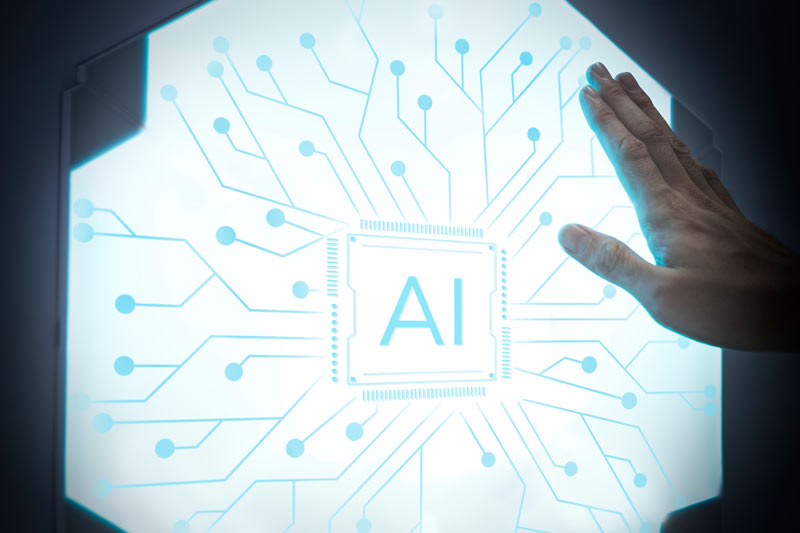In today’s fast-paced business environment, efficiency and productivity are paramount. Artificial Intelligence (AI) has emerged as a game-changer, transforming the way businesses operate by automating routine tasks, providing insights, and enhancing decision-making. This blog explores how AI can streamline daily business tasks, making operations smoother and more efficient.
1. Automating Administrative Tasks
Email Management
AI-powered tools can manage your inbox by sorting emails, prioritizing important messages, and even drafting responses. This automation reduces the time spent on email management, allowing employees to focus on more critical tasks.
Scheduling and Calendar Management
AI assistants like Google Assistant and Microsoft Cortana can handle scheduling by setting up meetings, sending reminders, and managing calendars. These tools can coordinate schedules across teams, ensuring that no important meetings are missed.
2. Enhancing Customer Service
Chatbots and Virtual Assistants
AI-driven chatbots are revolutionizing customer service by providing instant responses to customer inquiries. These bots can handle a wide range of tasks, from answering frequently asked questions to processing orders and providing product recommendations, enhancing customer satisfaction and engagement.
Personalized Customer Experience
AI can analyze customer data to provide personalized experiences. By understanding customer preferences and behaviors, businesses can tailor their services and communications, leading to higher customer loyalty and retention.
3. Streamlining Financial Processes
Automated Bookkeeping
AI-powered accounting software can automate bookkeeping tasks, such as invoicing, expense tracking, and financial reporting. This not only reduces the risk of errors but also frees up time for finance professionals to focus on strategic planning and analysis.
Fraud Detection
AI can enhance security by monitoring financial transactions in real-time to detect and prevent fraudulent activities. Machine learning algorithms can identify unusual patterns and behaviors, providing an additional layer of protection against fraud.
4. Improving Human Resources Management
Recruitment and Onboarding
AI can streamline the recruitment process by automating tasks like resume screening, candidate assessment, and interview scheduling. AI tools can analyze candidate profiles to identify the best matches for job openings, speeding up the hiring process and improving the quality of hires.
Employee Engagement
AI can monitor employee engagement and satisfaction through sentiment analysis of feedback and communication patterns. This allows HR teams to identify issues early and take proactive measures to improve employee morale and productivity.
5. Enhancing Marketing Efforts
Predictive Analytics
AI can analyze large datasets to predict market trends, customer behavior, and campaign performance. This allows businesses to make data-driven decisions, optimize marketing strategies, and allocate resources more effectively.
Content Creation and Curation
AI tools can generate and curate content for social media, blogs, and marketing campaigns. By automating content creation, businesses can maintain a consistent online presence and engage their audience without investing significant time and resources.
6. Optimizing Supply Chain Management
Inventory Management
AI can predict demand and optimize inventory levels by analyzing sales data, market trends, and other factors. This helps businesses reduce inventory costs, prevent stockouts, and ensure timely delivery of products.
Logistics and Transportation
AI can optimize logistics and transportation by analyzing routes, traffic conditions, and delivery schedules. This leads to more efficient operations, reduced transportation costs, and improved delivery times.
7. Supporting Decision Making
Data Analysis and Insights
AI can process and analyze vast amounts of data to provide actionable insights and identify trends that might be missed by human analysts. This helps businesses make informed decisions, identify opportunities, and address challenges more effectively.
Strategic Planning
AI can assist in strategic planning by simulating various scenarios and predicting their outcomes. This allows businesses to evaluate different strategies and choose the best course of action based on data-driven insights.
Conclusion
AI is transforming daily business tasks by automating routine activities, providing deep insights, and enhancing decision-making. By leveraging AI, businesses can improve efficiency, reduce costs, and stay competitive in a rapidly changing market.
Implementing AI solutions requires investment and a strategic approach, but the benefits far outweigh the initial costs. As AI technology continues to evolve, its impact on daily business tasks will only grow, driving innovation and productivity across industries. Embrace AI today to revolutionize your business operations and pave the way for a more efficient and successful future.

